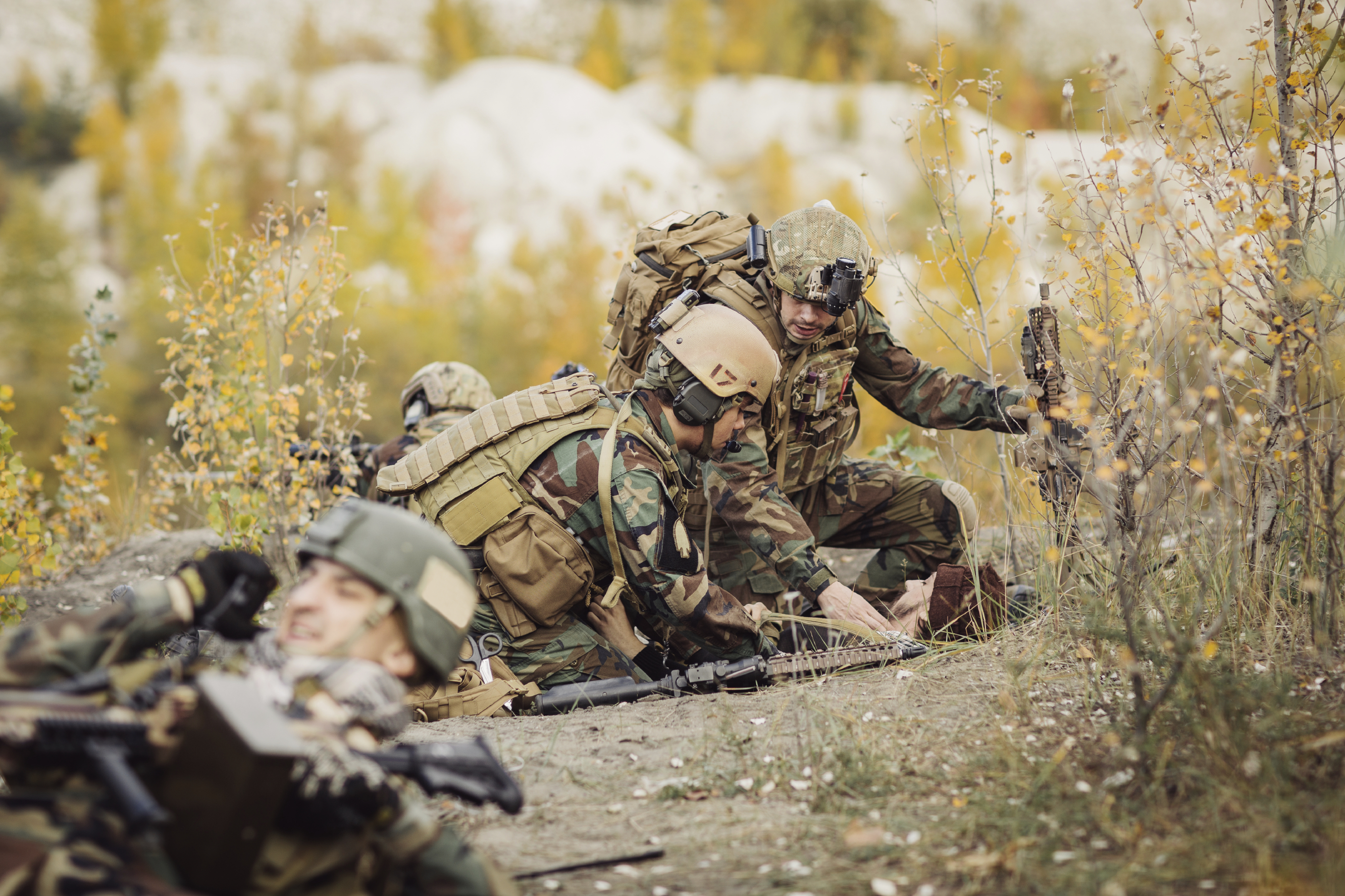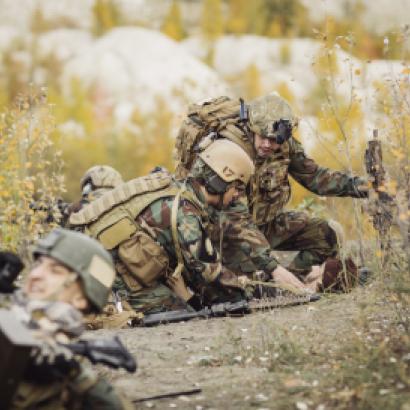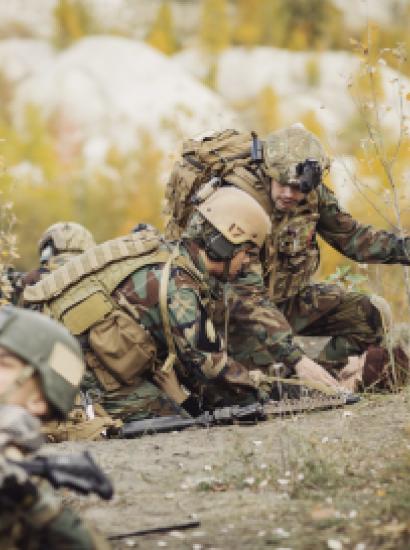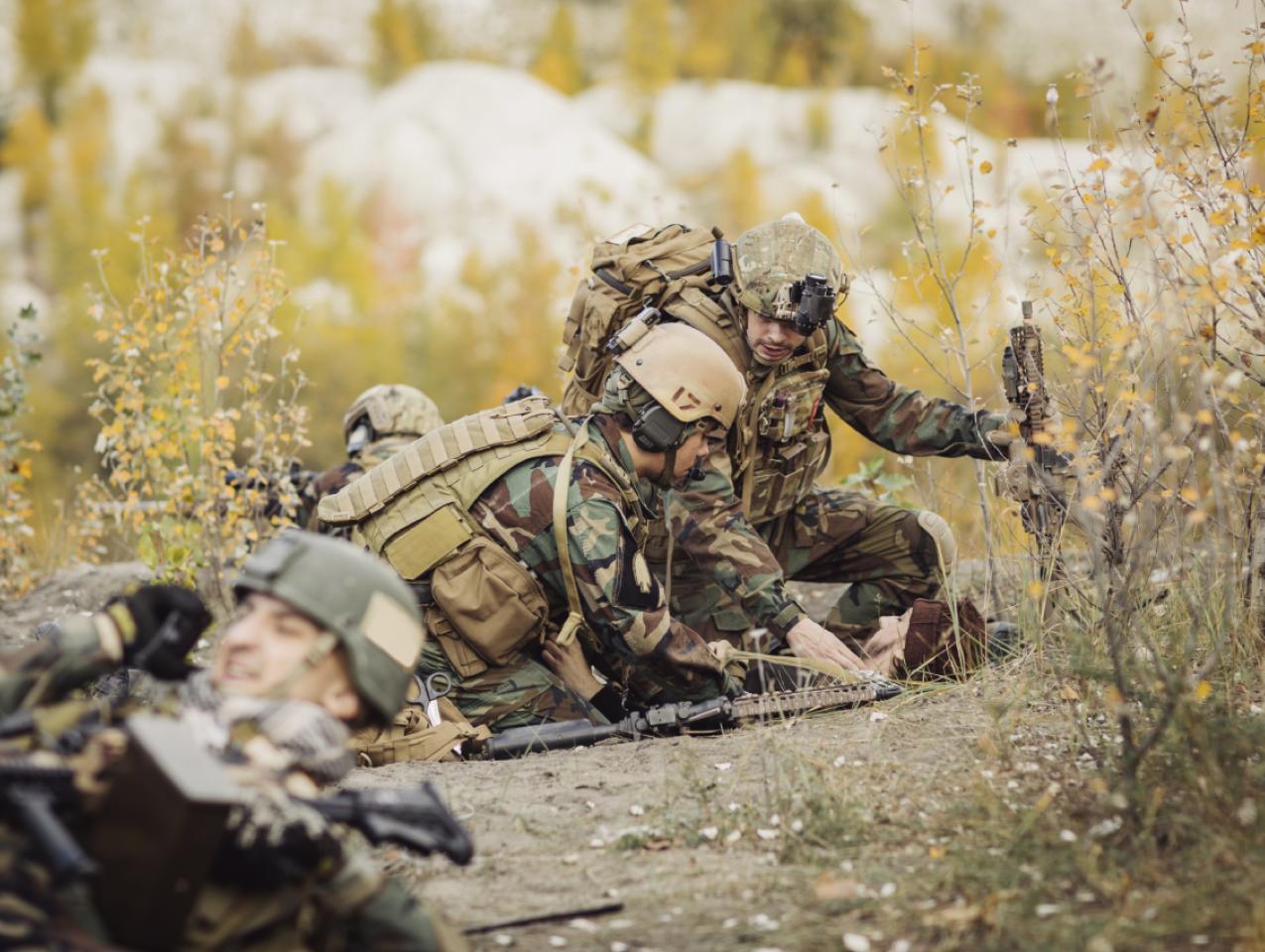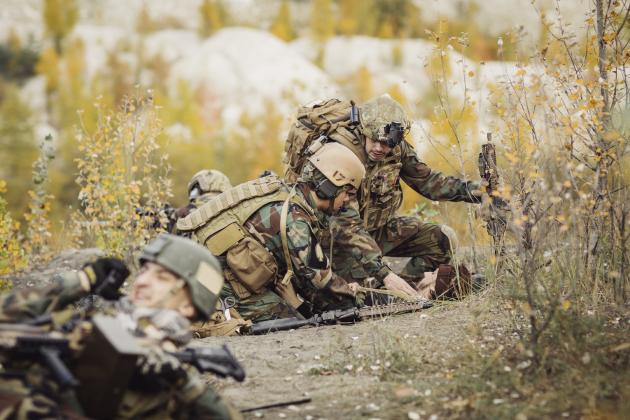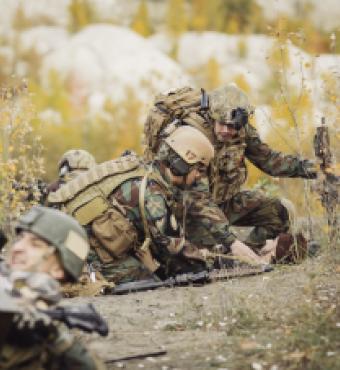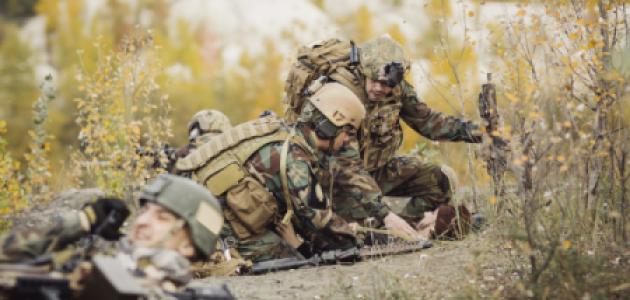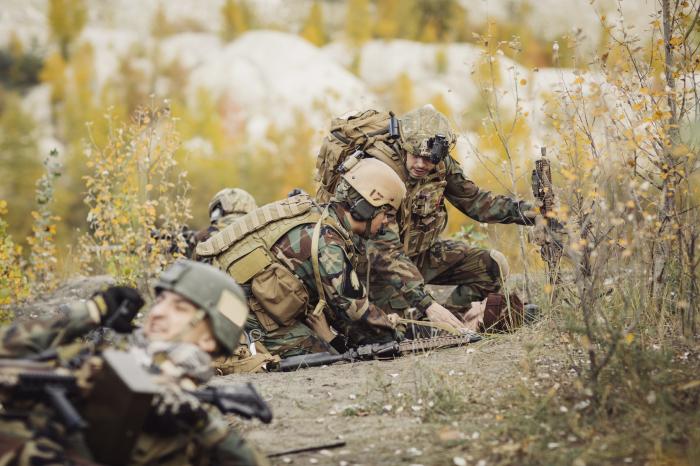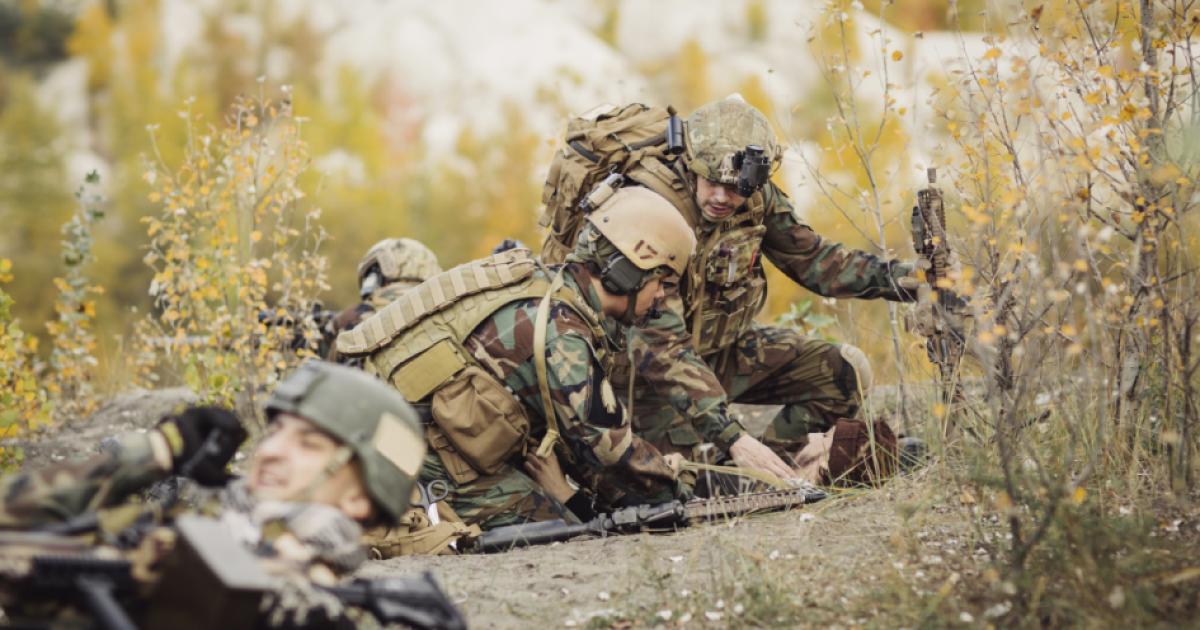As missiles fall on Syria in retaliation for Bashar Assad’s medieval use of chemical weapons—and as voices call for the use of some American ground troops to expedite his removal—we might reflect upon American military interventions in the post-Vietnam era.
America’s major interventions include Iraq in 1991, the Balkans in 1995 and 1999, Afghanistan in 2002, Iraq from 2003 to 2011, and, Libya in 2011. More minor interventions occurred in places like Lebanon, Grenada, and Panama—and there were occasional bombings in Africa and the Middle East. Although awful dictators were often removed—Maurice Bishop, Manuel Noriega, Slobodan Milosevic, Mullah Omar, Saddam Hussein, Muammar Gaddafi—nothing quite turned out as expected.
The first Gulf War forced the genocidal Saddam Hussein out of Kuwait, but left him in power in Iraq, where he continued to murder thousands. Hussein’s reign prompted 12 years of UN-sanctioned no-fly-zones, “oil for food” graft, on-off American bombing against his regime—and, of course, another war. Twelve years later, and after the disaster of 9/11, George W. Bush finally got rid of Saddam. But the cost was steep. America lost 4,516 soldiers to achieve a peace and consensual government by 2008—only to have Obama effectively relinquish control of the country to Iran and ISIS in 2011.
Afghanistan is now a 16-year effort. The evolving aims and strategic objectives of the intervention are still not clear. It started simply enough: find Osama bin Laden and punish the Taliban regime that harbored him. But before too long, mission-creep set in; the objectives became nation-building and protecting reformist Afghans from the Islamists. Ever since the times of Alexander the Great, Afghanistan has been an elusive conquest. In the eyes of the embittered Macedonians, the British, and the modern Soviets, the landlocked, resource-poor, and factional country was never worth the blood and treasure necessary to secure anything outside a few major cities.
Bill Clinton’s two rounds of bombing in the Balkans is often said to have achieved its purpose of forcing Milosevic out of power and stopping mass killings. Some argue sanctions or Russian pressure more likely prompted the collapse of Milosevic’s government. Either way, it’s interesting that neither the UN Security Council nor Congress approved the intervention before the bombs fell.
The Hillary Clinton/Susan Rice/Samantha Power triad engineered the 2011 bombing of Libya that took out the monstrous Gaddafi, who was, it should be said, warming to the West, having given up his WMD projects and terrorist sponsorship. The intervention avoided American losses and an occupation. Yet the needlessly punitive bombing attack turned Libya into a wasteland and a terrorist recruiting ground. Its logical denouement was the lethal Benghazi fiasco. Obama bombed without congressional approval and by subverting UN resolutions that limited action to no-fly-zones and humanitarian assistance. Given Obama’s performance in Libya it is probably understandable why he did not enforce his red line in Syria.
Of these recent interventions, the one in the Balkans was ostensibly the most viable. For all the cumulative Serbian atrocities and wreckage inflicted by NATO, it involved our NATO allies in a shared European enterprise inside Europe against a European military with no direct American combat fatalities.
The removal of Saddam was professionally accomplished. Yet the goal to leave behind a better regime failed until the surge. The Bush administration wrongly obsessed over the WMD threat when Congress had passed a wide spectrum of 23 writs sanctioning intervention (and were unfortunately not subsequently emphasized as causae belli). This misplaced focus allowed former supporters to bolt when sizable inventories of WMD were not found—and it facilitated critics to create the fake news of “Bush lied; thousands died.”
The dismissal of the Iraqi army served little purpose other than to force thousands of Iraqis with military training into the streets without jobs and into the hands of terrorists. The initial rules of engagement and flawed strategies of occupation allowed terrorists and Baathists to recalibrate. Elections in the U.S. turned the entire enterprise into a political quagmire.
All these concerns should ostensibly be arguments for keeping clear of tribal and factional strife, especially in the Middle East.
But, then again, non-intervention has costs. Bill Clinton was blamed for the humanitarian tragedy in Rwanda, when a hands-off policy greenlighted a genocide. Clinton’s reluctance to intervene, remember, came one year after being burned in the Black Hawk Down fiasco in Mogadishu.
What are some general contours, then, that might guide future debates over venturing into tar pits abroad—other than assuming from the outset that any intervention would likely end badly, make things worse, and get our citizens killed?
- Democratic presidents have a greater margin of error, given their loud anti-war credentials that suggest they bomb or invade reluctantly rather than eagerly. There was no anti-war movement against Clinton or Obama concerning either the Balkans or Libya, despite lots of collateral damage.
- Casualties govern all such interventions when progress stalls. Obama escaped a Libyan disaster only because he was willing to sacrifice Libya rather than a brigade of marines. There was a reason Trump, in Bill Clinton fashion, sent missiles rather than pilots over Syria. Obama is castigated for permitting the Syrian holocaust, but not so much as Bush was for ending Saddam’s holocaust—again, largely because not one American died in Syria, and over 4,500 perished in Iraq.
- Early domestic political unity about intervening means little, at least in comparison to the perceived pulse of the battlefield. The loudest voice that demands intervention is just as likely to be the first to demand a withdrawal when war proves less than predictable. The old Korean War axiom that “the only thing worse than a poorly conducted war is a lost war” is now inoperative. Many of those who signed the 1998 Project for the New American Century letter to Bill Clinton to lobby him (successfully) to legislate preemptive regime change in Iraq, and later did the same with George W. Bush after 9/11, bailed when the war went badly in 2005-2006.
- Fighting against Westerners is far easier. In the Balkans, Clinton was supposedly defending Europeans and killing like kind who for the most part fought back conventionally. Bombing rightwing European Orthodox Serbians did not earn the sort of moral outrage from the Left as did doing the same to rightwing fundamentalist Muslims, mass murderers, and dictators in the Middle East. The vast majority of America’s recent interventions have involved the Middle East, Islam, and asymmetrical warfare, in which enemies quickly became indistinguishable from friends. To “win” a non-Western peace still requires taking casualties and sinking into a morass of tribal politics. Losing through bombing without causalities (e.g. Libya) is deemed preferable to achieving a costly and limited stalemate (e.g. Afghanistan).
- Postmodern rules of the 21st century have redefined war—no longer seen as an existential conflict—to America’s disadvantage. Killing too many of the enemy (especially on television) can be as injurious as killing too few.
“Proportionality” demands that retaliation be no more savage than the provocation that began the war. In today’s utopian mindset, there are no “good” dictators who might replace “bad” dictators: a good and valuable leader like General Abdel Fattah el-Sisi in Egypt was found unacceptable because he did not endorse Western-style constitutionalism.
None of this pessimism is to say that the U.S. cannot intervene to eliminate thugs like Milosevic and Saddam, or to neutralize more conventional powers like North Korea and Iran, or to play Whac-A-Mole with Bashar al-Assad on the premise that he will run out of air bases before we run out of cruise missiles.
It is just a reminder that the next time we dare contemplate such a mess, we must be prepared for the following:
—that many of the most zealous hawks soon become the greatest “I told you so” critics of an unpopular war;
—that the men in battle, if deployed on the ground and without rapid progress toward victory, will often be left to fend for themselves without public attention in dirty alleyways figuring out who wants to blow them up;
—that the war will certainly end up being a political football in the next election;
—that Congressional approval, UN resolutions, NATO participation, and EU support are all well and good, but mean nothing in comparison to a decisive and quick American victory at little cost;
—that voters have no great interest in foreign affairs, but they gravitate to perceived inexpensive victory and loathe, as they should, costly defeat.
The U.S. military can ultimately accomplish any mission it is asked. But increasingly, if deployed on the ground in tribal fighting, with legalistic and politically correct rules of engagement, in haphazard fashion or for political abstractions, and concerned more with global than U.S. interests, it will pay a cost that is more than Americans are willing to pay, and for a cause the public deems not worth the effort.







